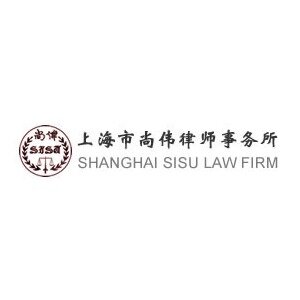Best Faith-Based Law Lawyers in Shanghai
Share your needs with us, get contacted by law firms.
Free. Takes 2 min.
List of the best lawyers in Shanghai, China
About Faith-Based Law in Shanghai, China
Faith-Based Law in Shanghai, China, involves the legal frameworks and regulations that pertain to religious activities, the establishment of religious entities, and the interaction of faith-based practices with the broader societal laws. While China maintains a principle of separation between religion and the state, it recognizes the role of religions, including Buddhism, Taoism, Islam, Catholicism, and Protestantism, within its cultural framework. The Chinese government regulates religious practices to maintain social harmony, and individuals or organizations dealing with faith-based matters need to navigate a complex legal landscape where state laws intersect with religious freedom and practices.
Why You May Need a Lawyer
There are several common situations where individuals or organizations may require legal assistance related to Faith-Based Law in Shanghai:
- Establishment of religious institutions or places of worship, which requires adherence to specific regulatory requirements.
- Legal issues arising from the management of religious institutions, including property disputes or incorporation matters.
- Assistance with compliance regarding the hosting of religious events and activities.
- Resolution of conflicts between faith-based practices and local regulations.
- Advice on rights and freedoms concerning the practice of religion within the legal framework provided by the Chinese government.
Local Laws Overview
The practice of Faith-Based Law in Shanghai is affected by various laws and regulations:
- Regulations on Religious Affairs: A national regulatory framework governing religious activities, societal supervision, and the establishment of religious institutes.
- Shanghai Municipal Regulations: Local provisions that align with national laws but cater specifically to the municipality's requirements, considering Shanghai's cultural context.
- Property Laws: Legislation relating to the ownership and administration of properties used for religious purposes.
- Labor Laws: Employment regulations affecting individuals working in religious institutions.
- Anti-Cult Law: Laws enacted to prevent the operation and proliferation of cults, which may impact some religious activities or organizations deemed non-compliant.
Frequently Asked Questions
1. What is the regulatory body for religious activities in Shanghai?
The primary body is the Shanghai Municipal Bureau of Religious Affairs, which operates under the national State Administration for Religious Affairs.
2. Can foreign nationals establish a religious institution in Shanghai?
Foreign nationals can participate in religious activities, but the establishment of religious institutions is generally restricted to Chinese citizens or organizations.
3. What are the registration requirements for a religious organization?
Religious organizations must register with the local religious affairs department and meet specific criteria outlined in the Regulations on Religious Affairs.
4. Are there restrictions on religious gatherings in Shanghai?
Yes, religious gatherings must comply with local regulations concerning public safety and order. They often require pre-approval from the relevant authorities.
5. How does property law affect religious institutions in Shanghai?
Properties used by religious institutions must be registered according to both civil and religious laws, with particular regulations governing their use and ownership.
6. What are the penalties for non-compliance with religious laws in Shanghai?
Penalties range from fines to suspension of activities or dissolution of the organization, depending on the severity of the non-compliance.
7. Can religious teachings be conducted in private homes?
Teaching of religion in private homes is subject to regulation and may require authorization to ensure it does not contravene local laws.
8. Are there legal protections against religious discrimination?
There are legal protections aimed at preventing discrimination based on religion, but these must align with other national laws and societal norms.
9. How are inter-religious conflicts handled legally in Shanghai?
Such conflicts are typically managed through dialogue facilitated by religious affairs departments or, if necessary, legal proceedings.
10. Is online religious content regulated?
Online dissemination of religious content is regulated to avoid dissemination of information that could disrupt social harmony or contravene national laws.
Additional Resources
To seek guidance or learn more about Faith-Based Law in Shanghai, the following resources may be beneficial:
- Shanghai Municipal Bureau of Religious Affairs: For inquiries and official guidelines.
- State Administration for Religious Affairs: National policies and information.
- Local legal practitioners: Lawyers specializing in religious and non-profit law.
- Faith-based organizations: Community-based groups can provide contextual advice and support.
Next Steps
If you require legal assistance in Faith-Based Law in Shanghai, consider the following steps:
- Identify your specific legal needs related to faith-based practices or disputes.
- Consult a legal professional specializing in Faith-Based Law to navigate the local legal landscape effectively.
- Gather necessary documents, such as registration papers, permits, and previous legal correspondence if applicable.
- Reach out to local resources and governmental bodies for additional support or clarification on regulations.
Taking early legal advice can help in mitigating risks and ensuring compliance with Shanghai's regulatory framework on religious matters.
Lawzana helps you find the best lawyers and law firms in Shanghai through a curated and pre-screened list of qualified legal professionals. Our platform offers rankings and detailed profiles of attorneys and law firms, allowing you to compare based on practice areas, including Faith-Based Law, experience, and client feedback.
Each profile includes a description of the firm's areas of practice, client reviews, team members and partners, year of establishment, spoken languages, office locations, contact information, social media presence, and any published articles or resources. Most firms on our platform speak English and are experienced in both local and international legal matters.
Get a quote from top-rated law firms in Shanghai, China — quickly, securely, and without unnecessary hassle.
Disclaimer:
The information provided on this page is for general informational purposes only and does not constitute legal advice. While we strive to ensure the accuracy and relevance of the content, legal information may change over time, and interpretations of the law can vary. You should always consult with a qualified legal professional for advice specific to your situation.
We disclaim all liability for actions taken or not taken based on the content of this page. If you believe any information is incorrect or outdated, please contact us, and we will review and update it where appropriate.









